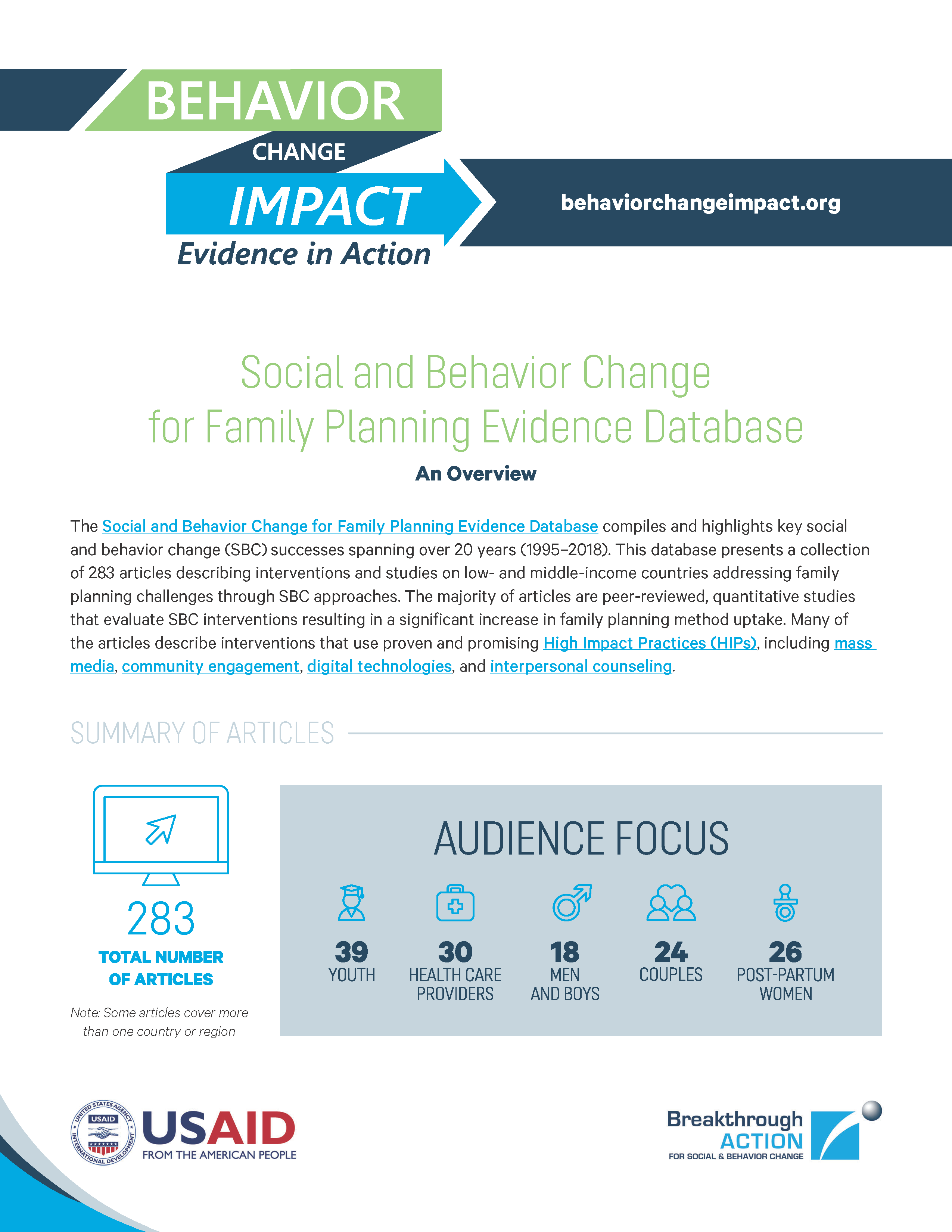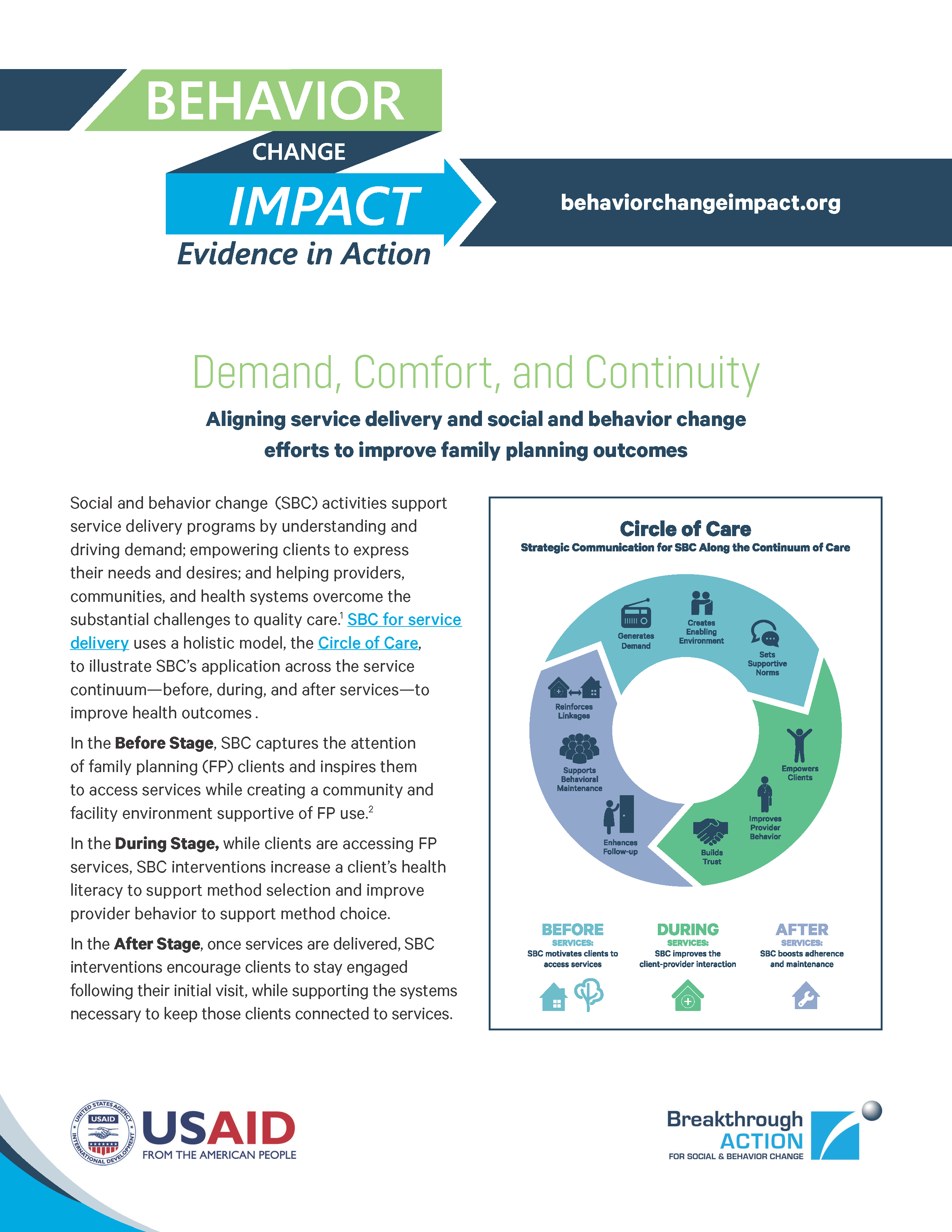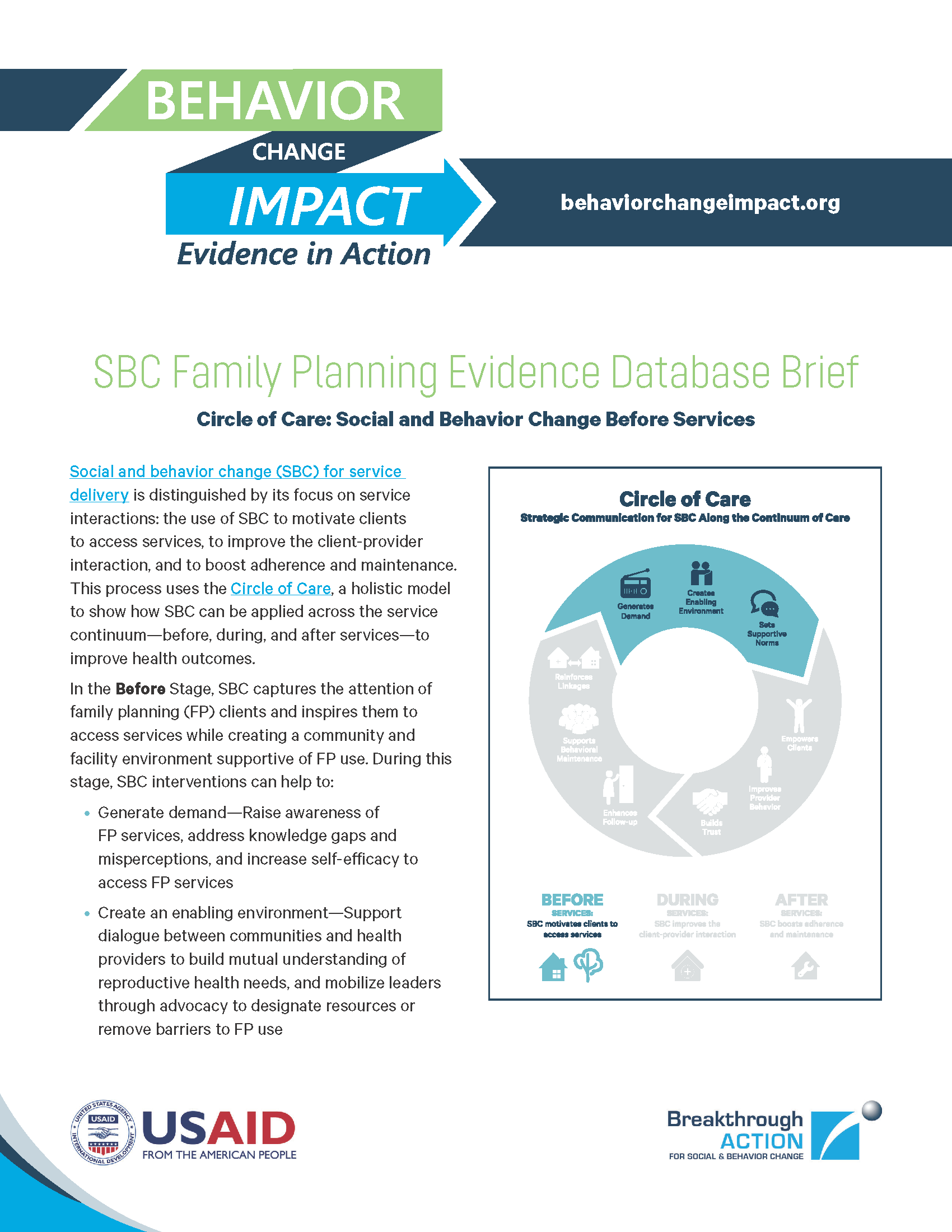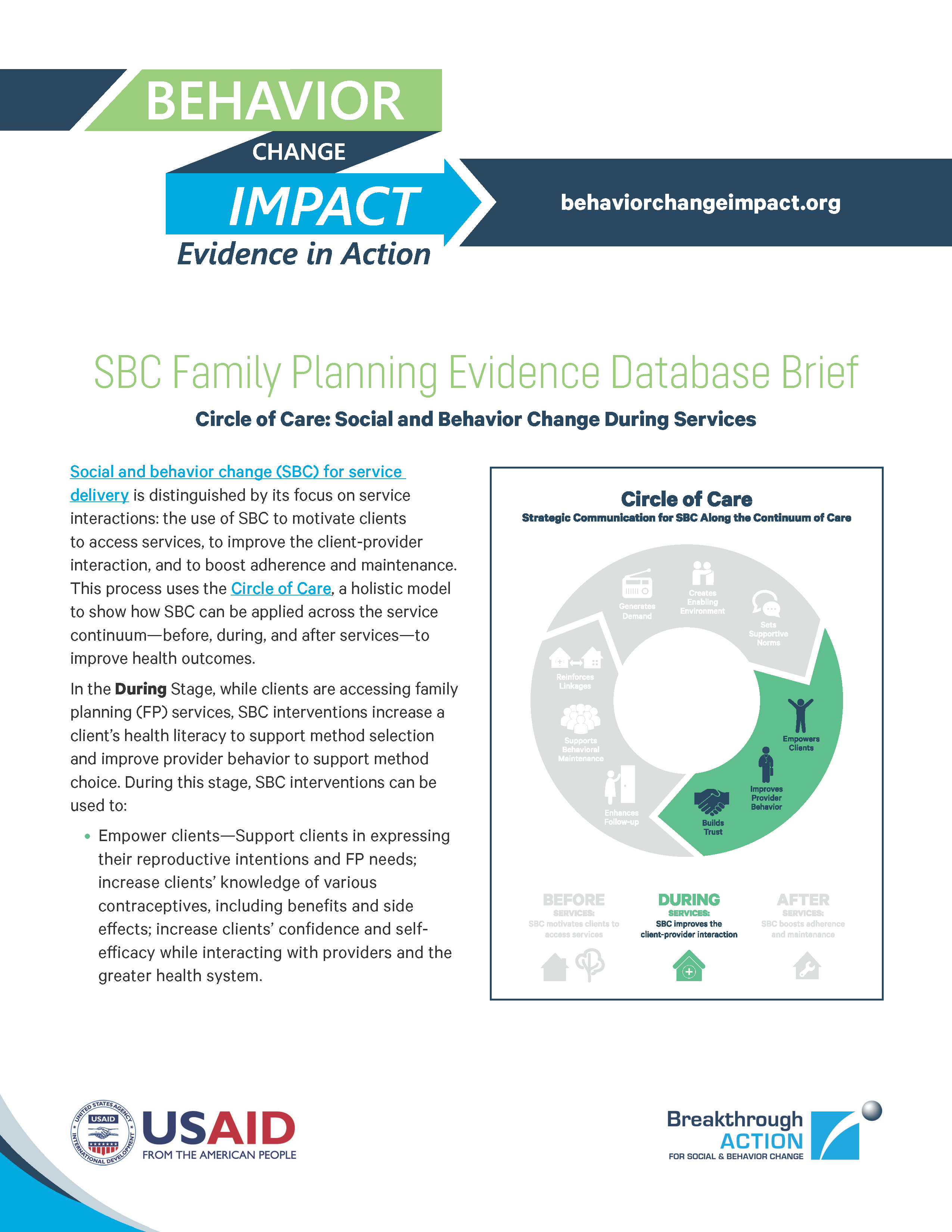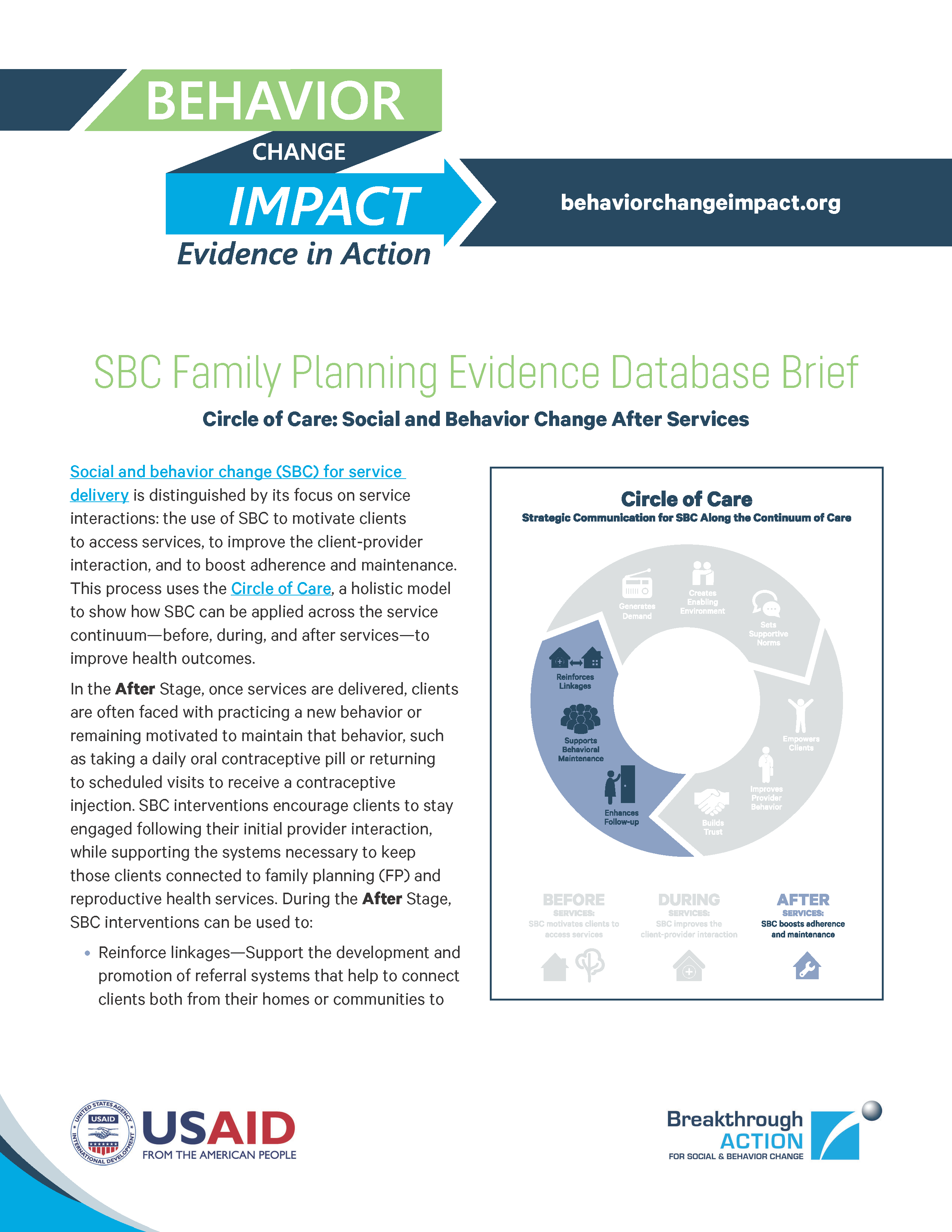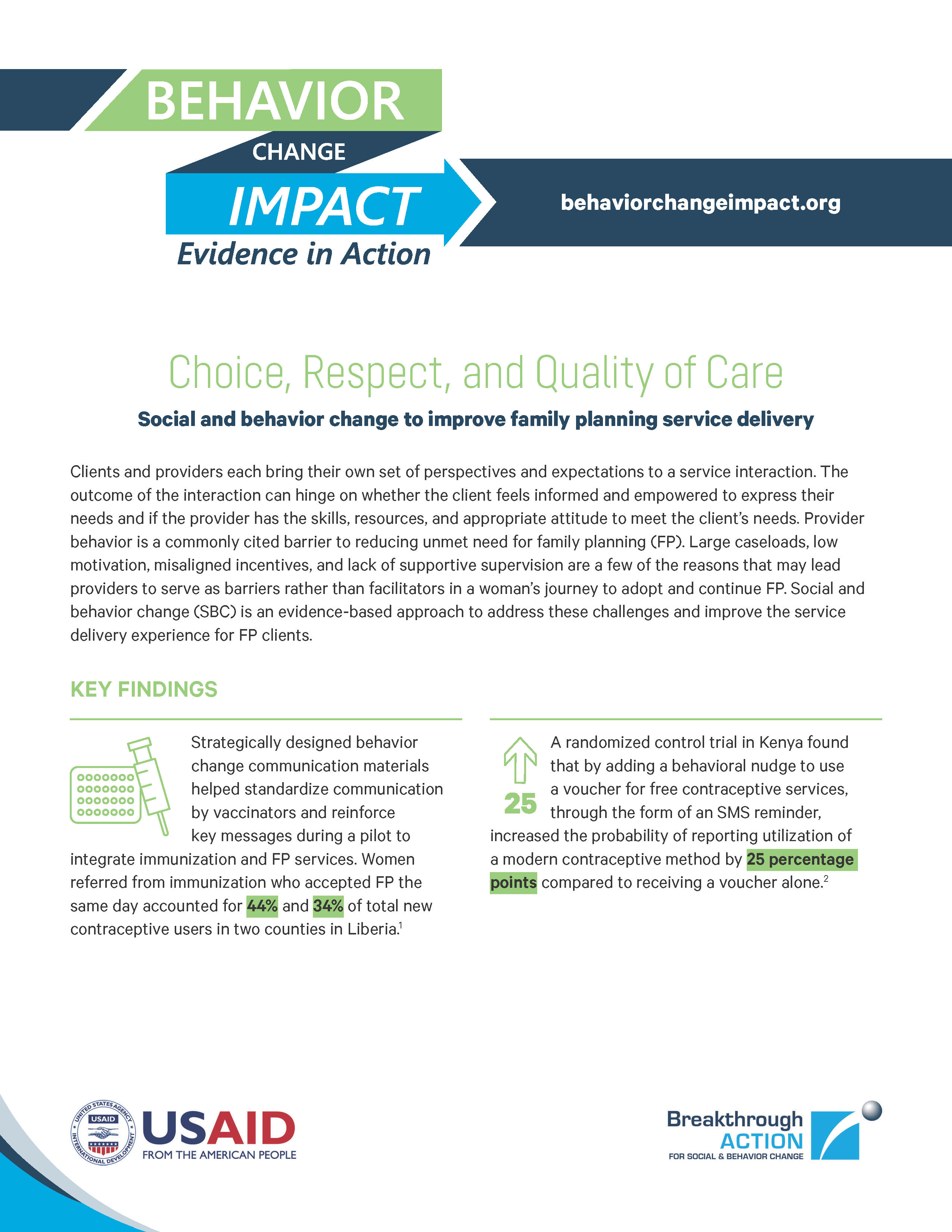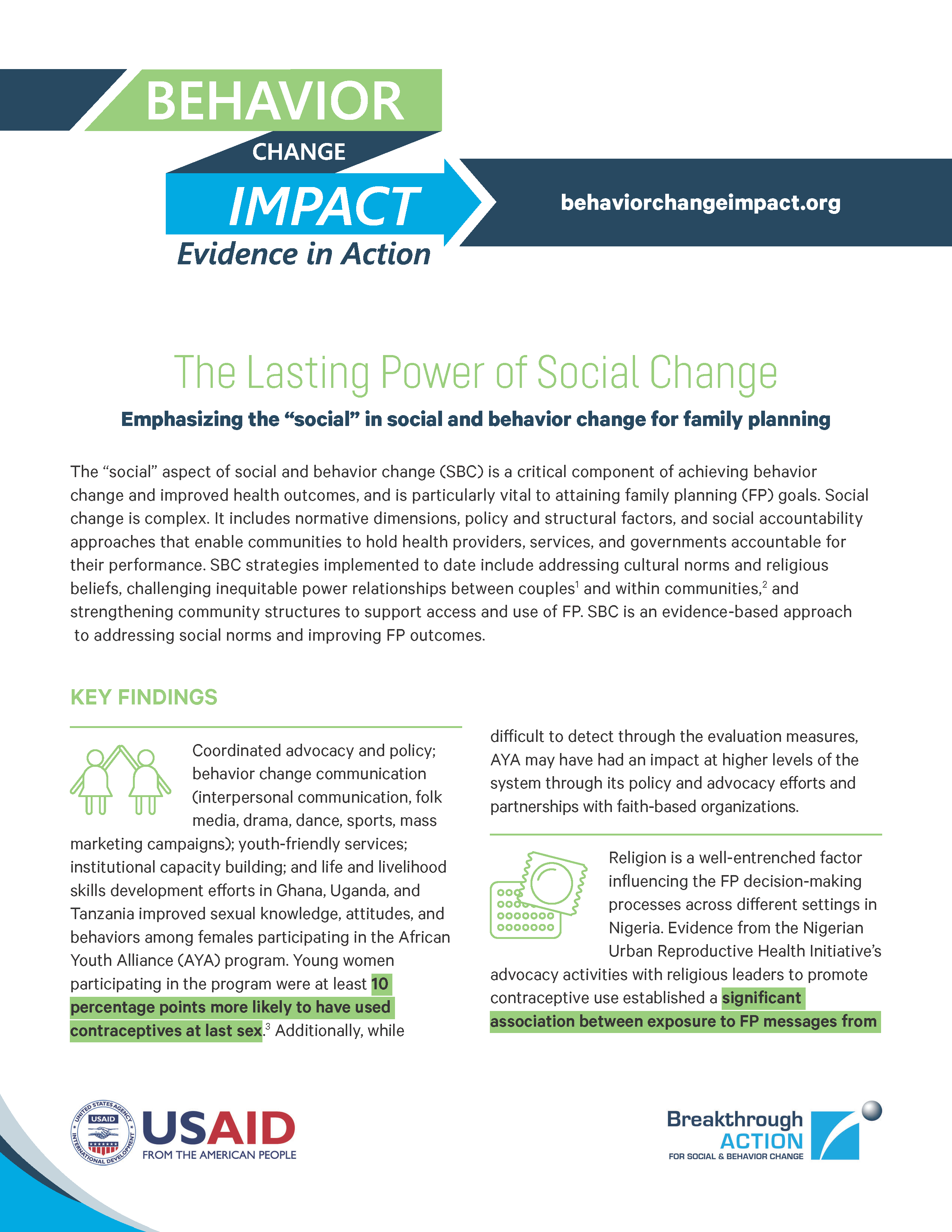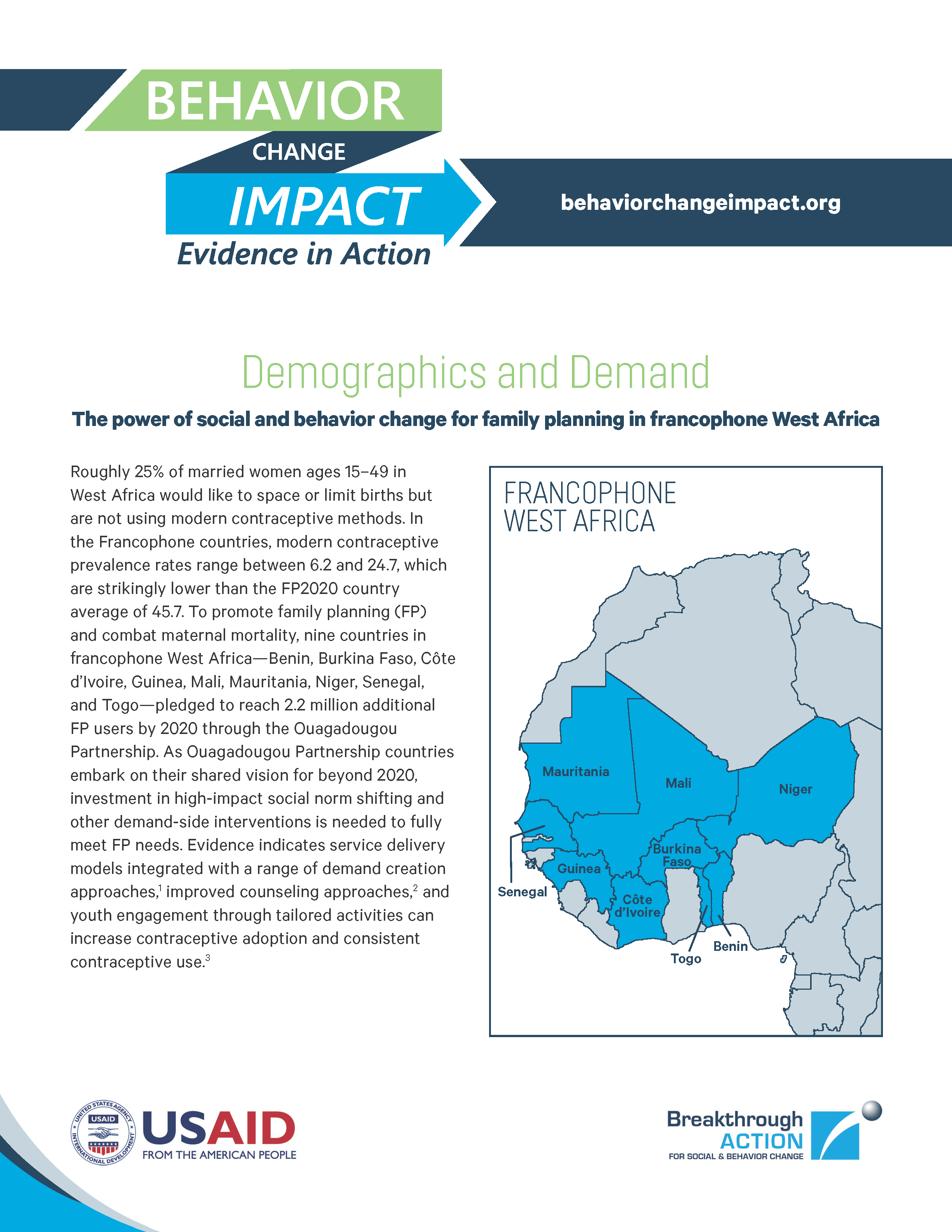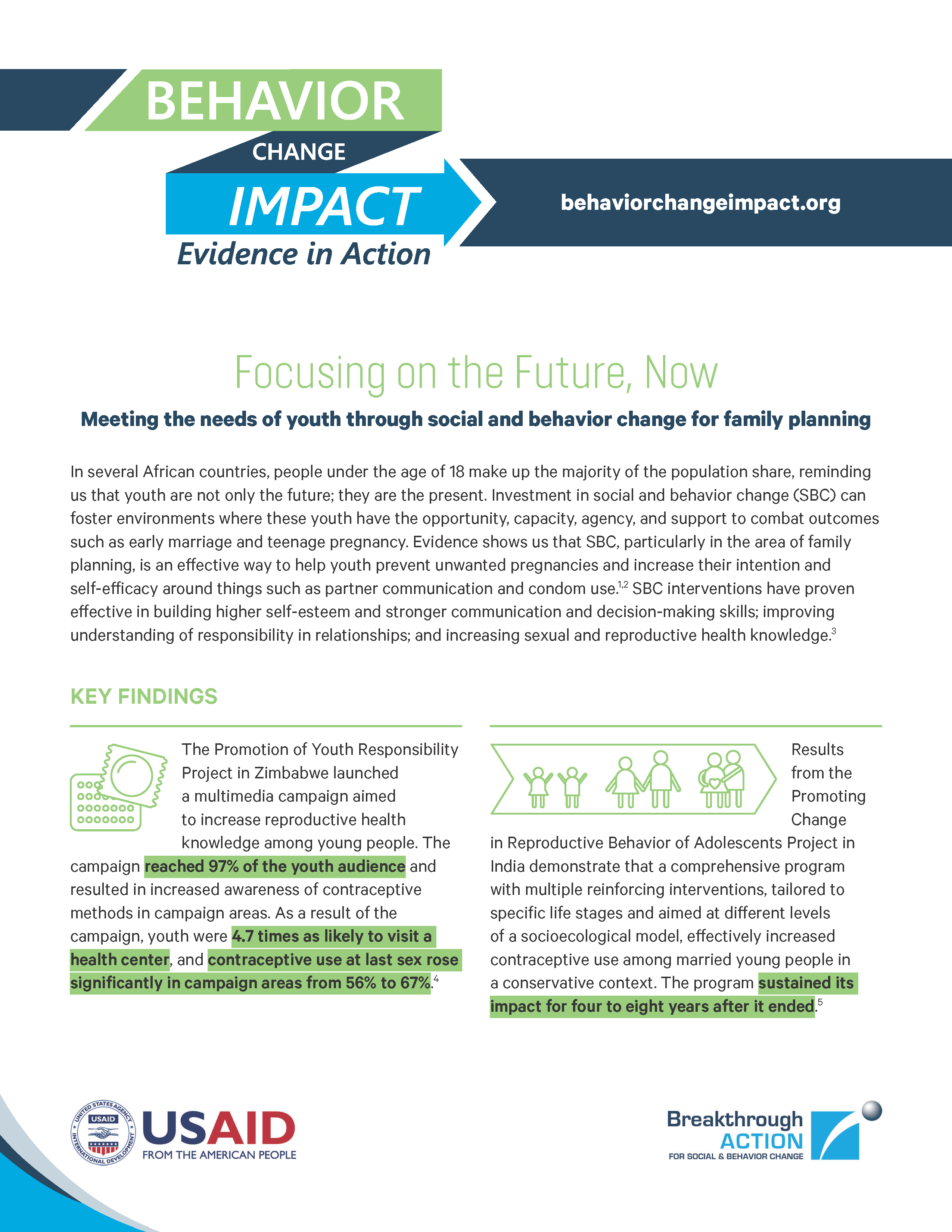About the Family Planning Database
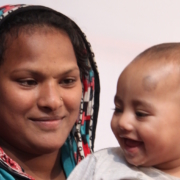
For decades, social and behavior change (SBC) has been used in family planning (FP) programs to positively influence behaviors around healthy timing and spacing of pregnancy (HTSP), use of modern contraception, contraceptive method selection and gender dynamics in FP decision-making with impressive results.
The SBC for Family Planning Evidence Database compiles and highlights key SBC successes spanning over 20 years (1995-2018). This database presents a collection of over 280 articles describing interventions and studies on low-and- middle-income countries that address family planning challenges through SBC approaches. The majority of articles are peer-reviewed, quantitative studies that evaluate SBC interventions resulting in a significant increase in FP method uptake. Many of the articles describe interventions that use proven and promising promising High Impact Practices (HIPS), including mass media, community engagement, digital technologies and interpersonal counseling.
Articles can be automatically filtered by checking boxes in the following categories: family planning (FP) method, audience, study design, country, and SBC activity. Unchecking the boxes or clicking the “clear filters” button will return the database to its original state. The database can also be filtered by searching keywords in the “search” box above the database. Database results can be printed, copied or converted into Excel/CSV files by clicking the appropriate buttons below.
See the other Family Planning / Reproductive Health databases:
FEATURED ARTICLES
- Doyle et al. (2018). Gender-transformative Bandebereho couples’ intervention to promote male engagement in reproductive and maternal health and violence prevention in Rwanda: findings from a randomized controlled trial. PloS one, 13(4), e0192756.
- Subramanian et al. (2018). Increasing contraceptive use among young married couples in Bihar, India: evidence from a decade of implementation of the PRACHAR project. Global Health: Science and Practice, 6(2), 330-344.
- Zerfu et al. (2018). Effect of Deploying Trained Community Based Reproductive Health Nurses (CORN) on Long‐Acting Reversible Contraception (LARC) Use in Rural Ethiopia: A Cluster Randomized Community Trial. Studies in family planning, 49(2), 115-126.
- Gullo et al. (2017). Effects of a social accountability approach, CARE’s Community Score Card, on reproductive health-related outcomes in Malawi: A cluster-randomized controlled evaluation. PloS one, 12(2), e0171316.
- Speizer et al. (2014). Demand generation activities and modern contraceptive use in urban areas of four countries: a longitudinal evaluation. Global Health: Science and Practice, 2(4), 410-426.
- Villarruel et al. (2010). Examining long-term effects of Cuídate-a sexual risk reduction program in Mexican youth. Revista Panamericana de Salud Publica, 27, 345-351.
- Karim et al. (2009). The impact of the African Youth Alliance program on the sexual behavior of young people in Uganda. Studies in Family Planning, 40:289-306.
- Babalola et al. (2005). Communication, ideation and contraceptive use in Burkina Faso: an application of the propensity score matching method. BMJ Sexual & Reproductive Health, 31(3), 207-212.
- Sharan et al. (2002). Spousal communication and family planning adoption: Effects of a radio drama serial in Nepal. International Family Planning Perspectives, 28:16-25.
- Kincaid, D. L. (2000). Social networks, ideation, and contraceptive behavior in Bangladesh: a longitudinal analysis. Social Science & Medicine, 50:215-31

